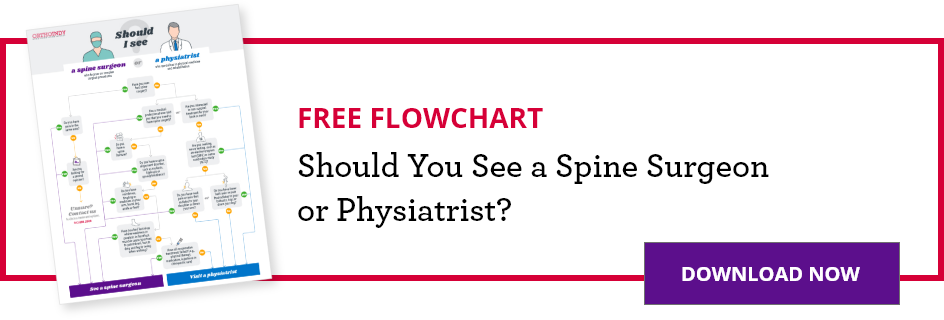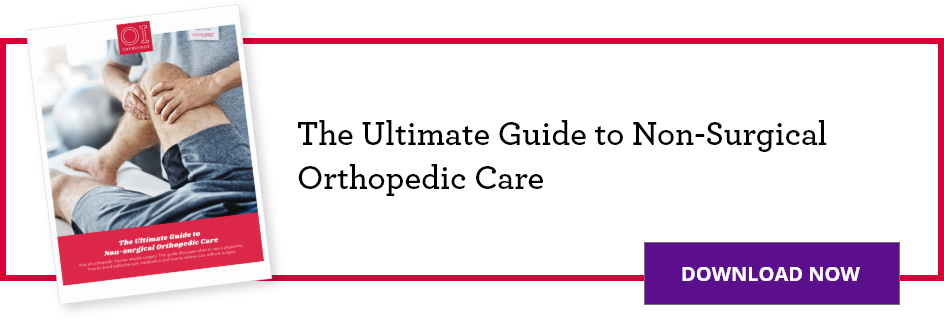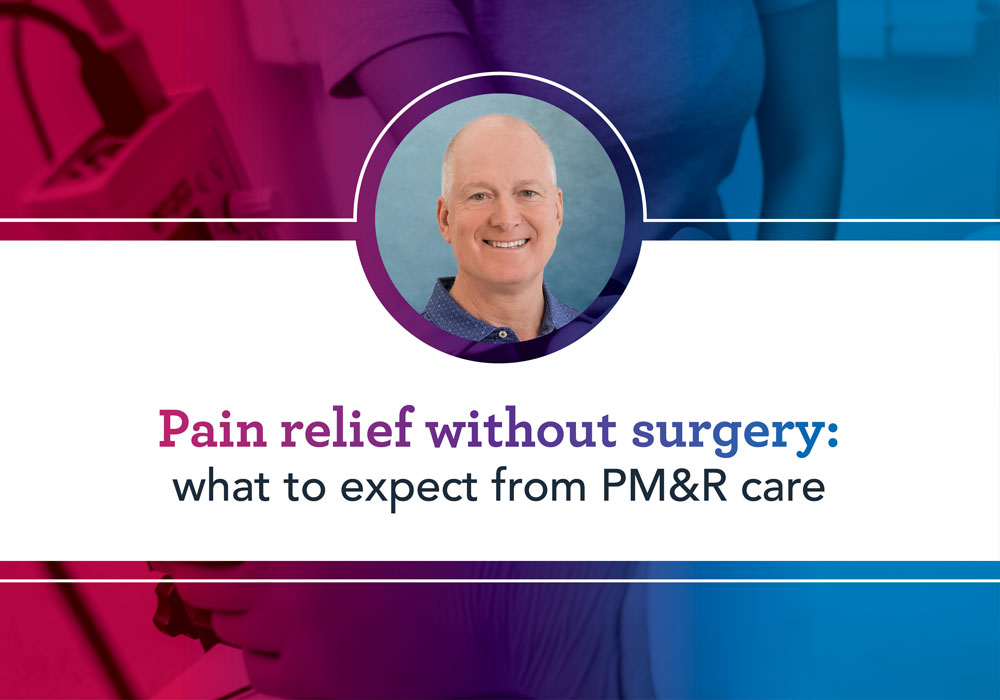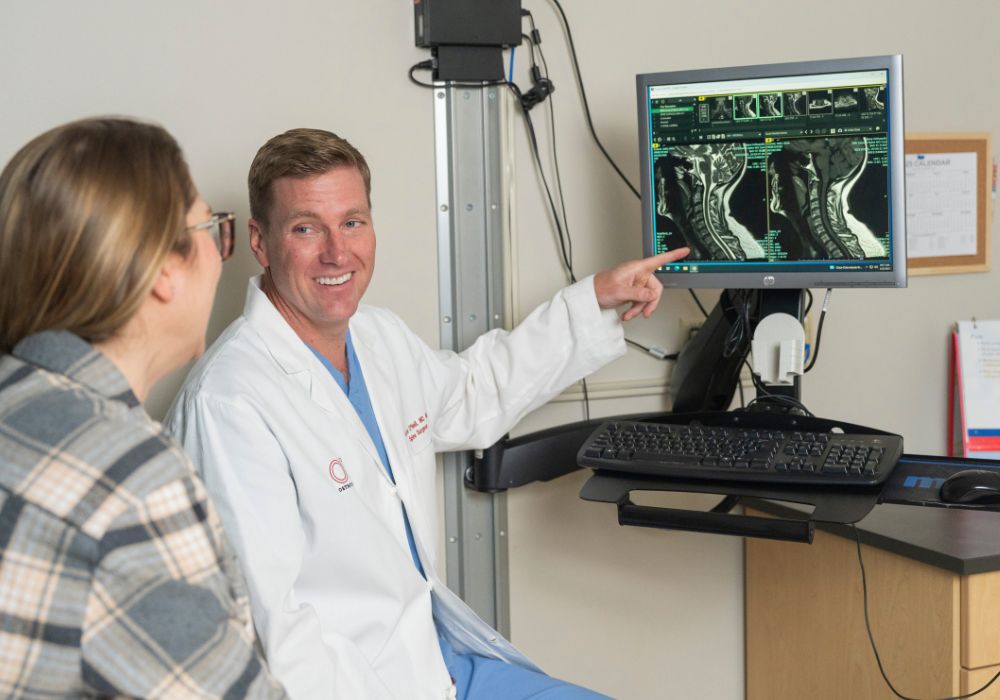THIS POST IS PART OF THE ULTIMATE GUIDE TO NON-SURGICAL ORTHOPEDIC CARE
For nonsurgical candidates, OrthoIndy offers alternatives to treating many painful musculoskeletal conditions. OrthoIndy physician, Dr. Mark Osborne is a physiatrist or a non-operative pain management physician.
“As part of a less well understood specialty, it is important to me that my patients understand the types of injuries we are trained to treat. The term non-operative pain management is more descriptive and more easily understood,” Dr. Osborne said.
Dr. Osborne works side by side with surgeons every day; however, he did not do a surgical residency during his medical training. He did a residency in physical medicine and rehabilitation.
In Dr. Osborne’s residency, he learned how to help treat acute (recent) and chronic musculoskeletal injuries without surgery.
Dr. Mark Osborne explains non-operative pain management care.
Q. What is non-operative pain management care?
A. My specialty treats acute and chronic musculoskeletal injuries that do not require surgery, as well as post-surgical treatment. Many people with musculoskeletal injuries will not require surgery.
However, if the patient’s imaging and examination suggest that surgery would be the best option, we will refer him or her to a surgeon. Additionally, my partners and I work closely with OrthoIndy Physical Therapy as one of many treatment options.
The pain management group also performs interventional procedures of the spine and peripheral joints.
HOW TO COPE WITH SEVERE CHRONIC PAIN
Q. When should someone consult a non-operative pain management care physician?
A. A person should consult a non-operative pain management care physician when they have an acute injury. A classic case is someone who is having sudden lower back pain after gardening or moving furniture into a new house. Normally, if a person’s pain does not improve over the course of three to four days, they should consult with a non-operative pain management care physician for further evaluation.
Q. What should patients expect when they see a non-operative pain management care physician?
A. Patients seeking non-operative pain management care at OrthoIndy will be thoroughly evaluated with a physical examination, questioned about their past medical history and possibly examined with advanced medical imaging. I will use this information to develop a treatment plan that may include non-operative care or in some cases a referral for a surgical consultation.
Q. How does an orthopedic non-operative pain management care physician differ from other orthopedic specialists?
A. Non-operative pain management physicians differ from orthopedic surgeons in that they do not perform surgery and seek alternatives to surgery instead. The non-operative pain management physician utilizes medication management, physical therapy and interventional procedures to treat pain and musculoskeletal injuries.
Q. What is the most common complaint that leads to non-operative pain management care?
A. My team and I frequently see patients who suffer from neck pain, lower back pain and joint pain.
Q. Why should someone choose OrthoIndy non-operative pain management care physicians?
A. The extensive collaboration between non-operative physicians and surgeons here at OrthoIndy is unmatched.
My goal is to educate my patients on all their treatment options, both surgical and conservative, and help them reach the best individualized treatment plan for their needs. Ultimately, my goal is to provide my patients with treatment that will alleviate their pain as quickly as possible.
To schedule an appointment with Dr. Osborne please call 317.802.2485 or learn more about non-surgical orthopedic care at OrthoIndy.
Schedule an appointment
Your well-being is important to us. Click the button below or call us to schedule an appointment with one of our orthopedic specialists. If your injury or condition is recent, you can walk right into one of our OrthoIndy Urgent Care locations for immediate care. For rehabilitation and physical therapy, no referral is needed to see one of our physical therapists.







